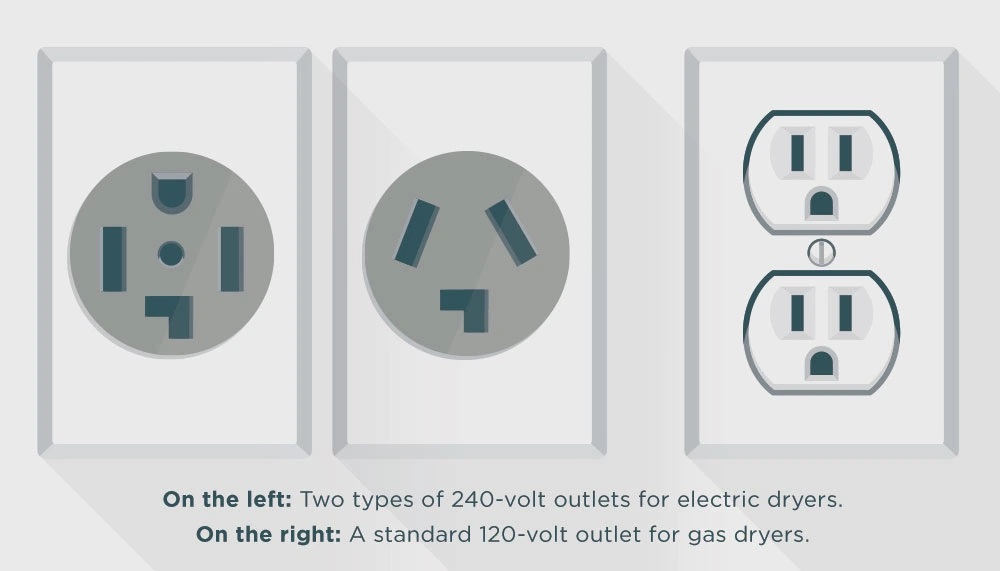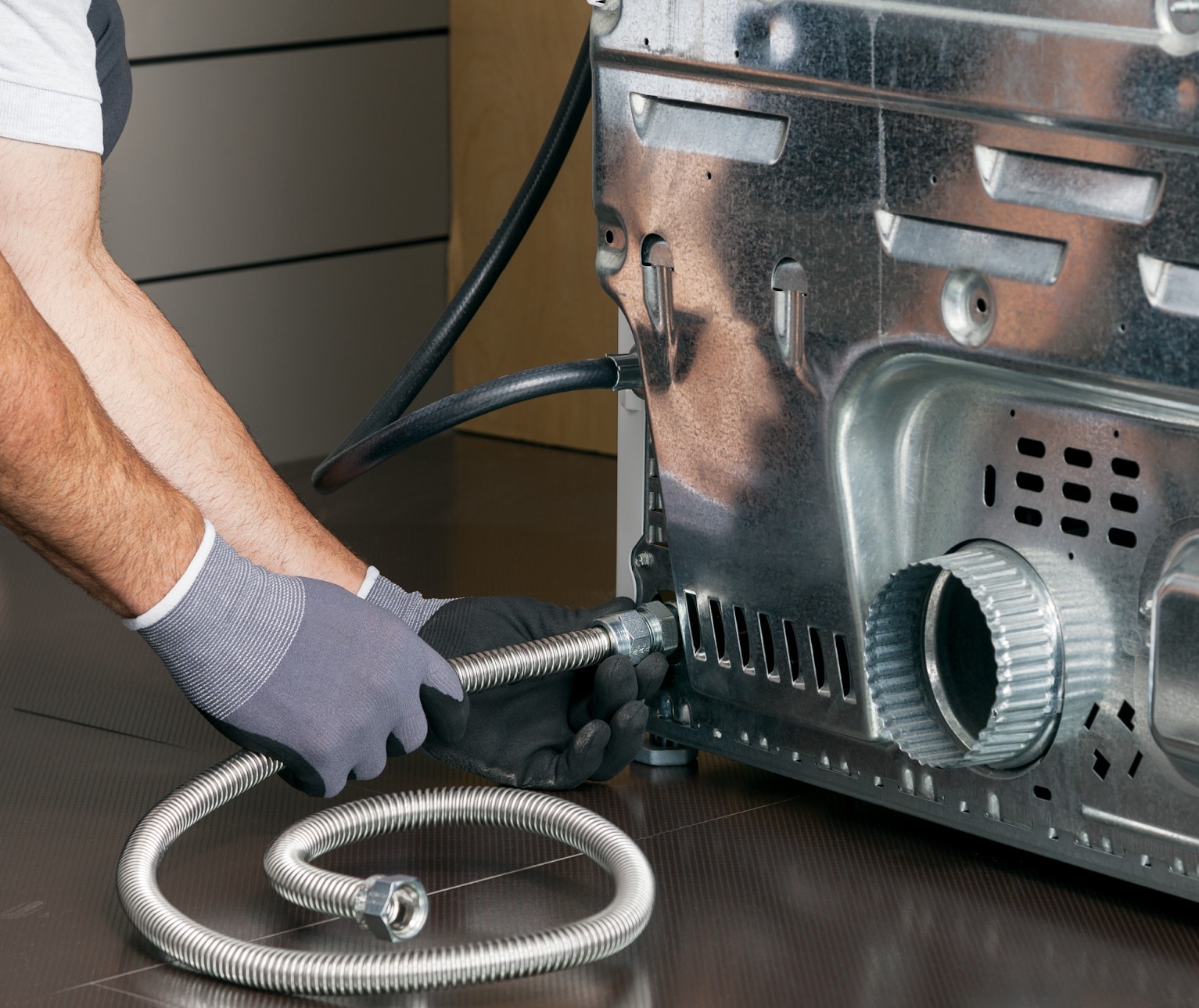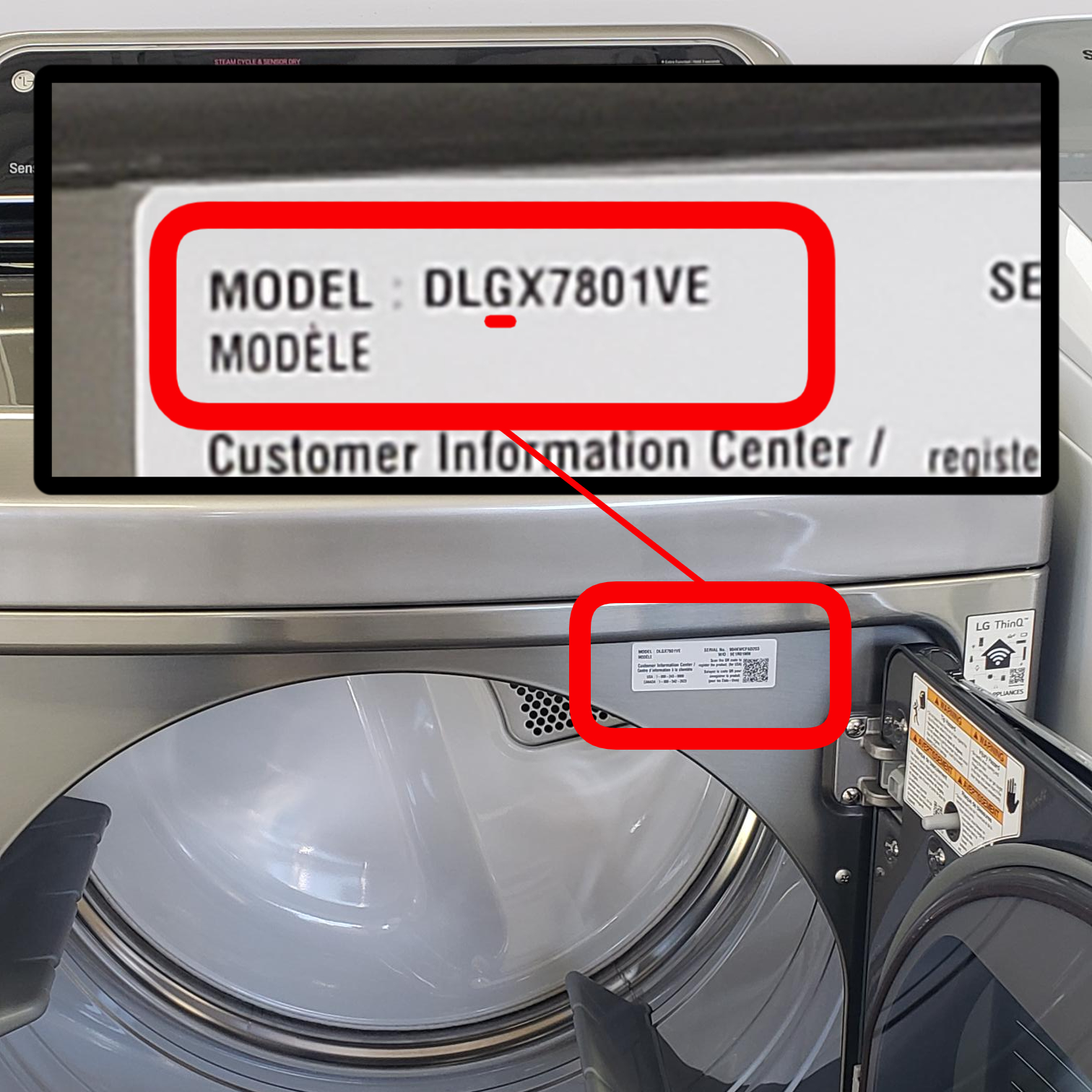Unlike their counterparts, which run exclusively on electricity, clothes dryers come in both gas and electric options, making the final purchase more involved than selecting a style or capacity. Besides having to budget around $100 more for a gas dryer over an electric dryer, knowing which fuel your living situation supports is another important part of the buying journey. With a little context and some basic knowledge, it's easy to learn which option you should buy, so follow along as we give you the tips you need to know.
In This Article:
- Mistakes to Avoid
- How to Identify a Gas Connector
- Hidden Connections
- Additional Factors You Should Know

Avoid These Mistakes
While the working gas line in your kitchen may indicate your whole house is equipped for gas appliances, that’s not always the case. For example, remodels are a common reason some homes have gas in the kitchen but not in the laundry room. While there’s always the option to extend a laundry gas line as part of the renovation, time and budgeting also affect the final decision.
Also, don’t assume your dryer should be electric just because there’s an outlet for the space, either. Believe it or not, all dryers require an electric outlet — even gas dryers. The reason being, the controls, WiFi connection (when applicable), and power board still require electricity to run, as well as the initial spark that ignites the heat source for the dryer.
All in all, the telltale clues will be the power cord, plug, and wall outlet, as detailed in this chart.
| Gas | Electric | |
|---|---|---|
| Attributes |
‣ Can be plugged into any regular home outlet ‣ Standard three-prong outlet |
‣ Larger, single-outlet plug (roughly the size of a hockey puck)
‣ A much thicker cord ‣ Either a three-prong or four-prong outlet |
Now, take a look at the details in this visual below.

Sometime between 1996 and 2000, the change from a 3 prong dryer outlet to a 4 prong dryer outlet was made. The swap added a neutral hot wire that safely drove currents into the ground, eliminating stray currents from running up the dryer and creating possible shock hazards.
But, because there’s no real way for manufacturers to know whether a new dryer will go to a home built before new regulations, electric dryers don’t ship with neither cord (conversely, gas dryers do, since they do use a standard outlet). As a result, if you plan on installing an electric-powered dryer yourself, you’ll need to know which outlet your new dryer runs off of. Having your new dryer appliance installed by Grand Appliance and TV, however, requires no guesswork since we bring both to accommodate whichever outlet your home uses.
How Do I Know What a Connector Looks Like?
While a standard 120-volt outlet like the example above is a good indication you need a gas dryer, locating the connector will be the ultimate confirmation.
The gas connector connects from the back of a dryer and a gas-supply pipe (this will have a shut-off valve and is usually behind or beside a dryer). The main feature is a corrugated or semi-rigid hose usually in one of the lower corners of the dryer, like the image below.

What if a Dryer Connection is Hidden?
Moving a dryer isn’t the most convenient thing to do, which is why it’s handy to know how to determine whether your dryer connection is gas or electric by examining the front of the unit. Common scenarios for when this is practical include:
- A matching front load washer and dryer installed beneath a countertop
- A front load washer and dryer on top of laundry pedestals
- Stacked laundry sets housed in a closet or similar confined spaces
Instead of pulling the appliance out, try…
Reading the Model Number
The internet makes easy work of understanding nomenclature that are otherwise only familiar to appliance experts (Whirlpool gas dryers use WGD, for example). With the model number in hand, a quick search will pull up product specifications, including whether the dryer is gas or electric. At a glance, the letter E or G in the prefix of a model number my help indicate electric and gas respectively.
Finding the model number is easy. Either go off the invoice, receipt, or sales order if it’s available, or locate the badge.
A dryer’s model badge can be commonly found:
- On the inside near the dryer door opening
- On the door along the outside rim of the door

Keep in mind, a dryer manual is a viable resource but can be written to cover multiple models with similar features. As a result, the manual may include several model numbers, but not your number exclusively. If an internet search, a model badge, or the manual aren’t helpful, defer to the serial number, as shown in the example below.
Additional Factors to Keep in Mind
Compared to washers, dryers are more diverse in terms of installation. These are couple of extra considerations to keep in mind.
Ventless Dryers
Not many people are aware of ventless dryers, compact versions of the standard dryers and handy space-saving solutions in urban living spaces. These models eliminate the need for ventilation to the outside of a home and instead recycle the heat source again and again throughout a cycle. Although all ventless dryers run on electricity to eliminate any fire hazard, many still use a 120-volt socket as a power source (the same as a gas dyer).
LP Gas Dryers
In the U.S., every gas dryer is manufactured to work with natural gas (NG) despite a large number of households running on liquid propane (LP). Fortunately, most dryers can be converted from natural gas to liquid propane by a professional. In this scenario, the serial tag isn’t as useful since it labels the dryer as natural gas, but a receipt or invoice is a good resource. It's important to understand which power source your home runs on in order to determine whether your new dryer will work as-is or if it will need professional LP conversion (contact an expert at Grand to learn more!).
Shop Reliable Dryers at Grand Appliance
Dryer shopping can be tricky — unless you have the help of an expert to make the process smooth and reliable. At Grand Appliance and TV, we carry a wide catalog of dryers suited for both gas- and electric-powered laundry spaces from a selection of trusted appliance names.
Explore all our laundry appliance options along with other major appliances from our stock online, by phone at 888-396-8165, or at an appliance showroom near you, including 29 locations in Milwaukee, Green Bay, Davenport, Chicago, and Indianapolis.
For even more information, see Grand Appliance's Dryer Buying Guide.